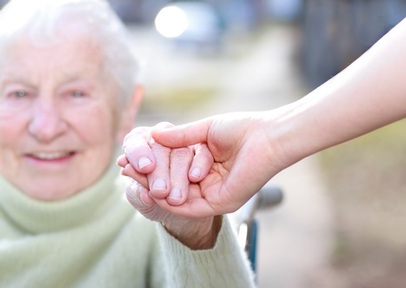Infection not poor mental health could be cause of falls at home
Falls by an older person could be the result of an infection rather than poor mental health, a US study reveals.

Nearly half of falls resulting in visits to emergency rooms are caused by infections, according to a study by researchers at Massachusetts General Hospital.
Researchers found minor infections such as urinary tract infections accounted for up to 45 per cent of falls based on their analysis of 161 patients who were treated in emergency rooms for falls.
"Over the years I've been struck by the fact that some of the more serious infections I treated were in people who came to the hospital because they fell," said the study's principal researcher, Dr Farrin Manian, working at the hospital's division of general medicine in Boston.
"Even though many of the patients had vague early signs of an infection, such as weakness or lethargy, it was the fall that brought them in," Manian said in a news release from Infectious Diseases Week, an annual meeting of specialists in infectious illness."
The study urges concerned relatives, care workers and healthcare providers not to jump to conclusions about the cause of a fall.
Infection-related falls affect not just older people but can happen to anyone and family members and care workers should consider how patients felt before the accident and not assume they tripped, Dr Manian said in a statement.
Infections can lower blood pressure and lead to dizziness increasing the risk for a fall. Illness can also increase confusion in older people with dementia, the study authors said.
Urinary, bloodstream and respiratory infections were the most common culprits.
Age UK states injurious falls, including 70,000 hip fractures annually, are the leading cause of accident-related mortality in older people. The healthcare cost associated with fragility fractures is estimated at £2 billion a year.
After a fall, an older person has a 50 per cent probability of having their mobility seriously impaired and a 10 per cent probability of dying within a year with falls destroying confidence, increasing isolation and reducing independence.
Around one in 10 older people who fall becoming afraid to leave their homes in case they fall again.
The study’s findings were presented at the annual meeting of the Infectious Diseases Society of America.
Latest News
 29-Jul-24
Dementia Bus gives carehome.co.uk staff insight into life with dementia
29-Jul-24
Dementia Bus gives carehome.co.uk staff insight into life with dementia
 27-Jul-23
UK's top home care agencies in 2023 revealed
27-Jul-23
UK's top home care agencies in 2023 revealed
 30-Nov-22
A quarter of older people keep their falls secret from family
30-Nov-22
A quarter of older people keep their falls secret from family
 29-Nov-22
'Covid-19 has not gone away' say terminally ill
29-Nov-22
'Covid-19 has not gone away' say terminally ill
 28-Nov-22
IT consultant who received poor care opens 'compassionate' home care business
28-Nov-22
IT consultant who received poor care opens 'compassionate' home care business